“This Is Who I Am”: MPA Creator Award Recipient Jon M. Chu on Authentic Storytelling and the Power of Cultural Specificity – Part 2
With Wicked: For Good set to complete the story that began with 2024’s blockbuster, director Jon M. Chu, the Motion Picture Association’s Creator Award recipient for 2025, continues our conversation about his evolution as a filmmaker and the power of culturally specific storytelling to reach universal audiences.
Chu also opens up about his own fears, what he learned on the set of Now You See Me 2, and the thrill of being so close to sharing the entire two-part vision for his Wicked adaptation with the world.
Did working with this incredible cast and crew on Wicked and Wicked: For Good have a liberating effect on everyone, at least a little bit, from being daunted by the size and scale of what you were trying to achieve?
All fear of mistakes was off the table. We were so confident in trusting our instincts and knowing that we could always go back if it were a mistake, but we were able to stretch the boundaries of what this story could be. And because we had a camera, we could be precise about how we told it. That includes in post-production, when we’re cutting it together, knowing that we can hold on a shot that long, or we can have silence and understand that the audience doesn’t need music to feel a moment in the Oz dust. There are a couple of moments in movie two where we just sit on the acting to allow it to play out. We trusted each other that if someone had a crazy idea, we could “Yes, and” it and not worry, “What if people think this? What if people think that?” We were all the Fab Five, clutched together, arm-in-arm, walking down the road and not knowing what we were going to encounter next.
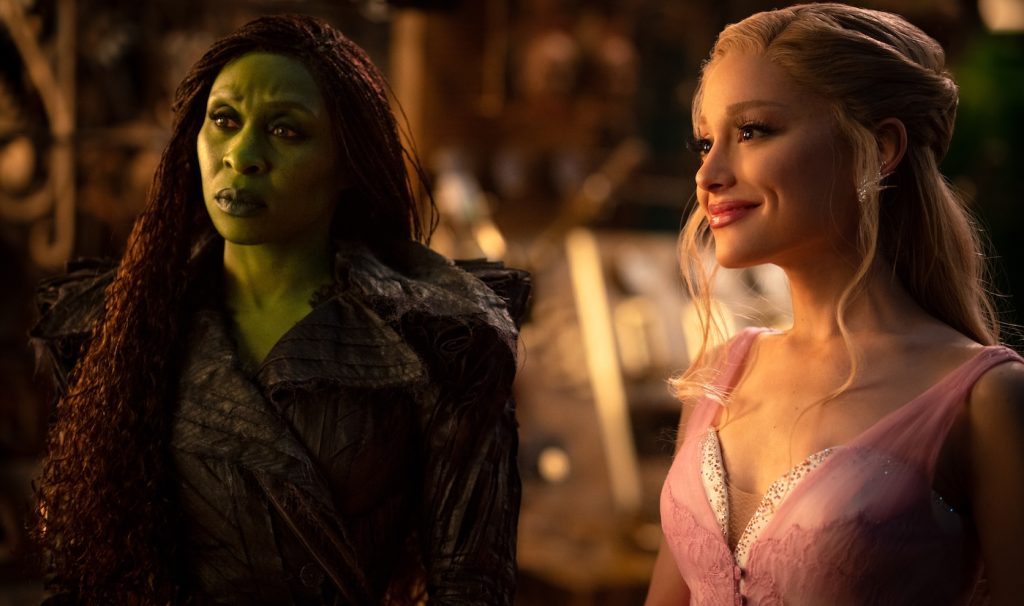
And yet, you’re shooting these two massive films back-to-back, so as you were saying before, there were tough days.
It was a year-and-a-half process of shooting, and there were no easy days. It’s cold, Ari has to wear a dress that literally has nothing on top, and she has to power through, and she’s miserable. And Cynthia has to do this scene over and over again, and she’s miserable because it’s putting her into a dark headspace. But when we’re done? At the end of the night, we’re texting each other. Because I edit on my phone on the way home, and I’ll cut some stuff and send it to them, and write, ‘This moment is everything.’ And that makes it worth it. Even before the audience saw Wicked, we felt a lot of pride. Then, when the audience saw it, accepted it, and took it as their own, that brought our joy to another level.
You’ve created these cultural watershed moments with Crazy Rich Asians and now Wicked, which is truly rare. You’ve had faith in viewers that these culturally specific movies you’ve chosen would be interesting to everyone. Is this faith in what audiences want something that you’ve had to grow into, or is this something you’ve always thought about?
I think I had that instinct when I was a lot younger, when I was making videos in high school. When I’d make wedding videos, I didn’t really care what the bride and groom wanted; I made what I thought they’d want that was nontraditional. I just had a reunion with high school friends I hadn’t seen in 26 years, and we went back and looked at the films I made with them, which I had forced them to be in as my actors. And they were crazy, but what I loved about seeing that kid make those movies was that kid didn’t have any fear. He was just making stuff that he wanted to see on screen. I think as I got into the movie business, the pressure is so high of just feeling like you belong there, that you deserve to be there. I was very young when I made my first movie in the studio world. I had seen a lot of my film school friends not get that opportunity, who were way smarter than I was and way more creative than I was, so when I was making my movies, I was trying to earn a position and get to the next spot. I learned a lot, I loved every one of those movies, but because I didn’t have the confidence, I couldn’t show the audience what I thought they wanted to see. I could sneak some moments in, like in Step Up 2 or with Bieber, when people thought, ‘Oh, that’s just a concert movie,’ I thought, no, it’s a beautiful fairy tale of the internet picking their star and watching his journey, and you’re going to root for him like Rocky. But I’d never put my actual self out there. I wasn’t ready to be judged by who I was yet.
When did you feel ready?
It wasn’t until after Now You See Me 2, and working with those great actors—Mark Ruffalo, Jesse Eisenberg, Woody Harrelson, Michael Cain, Morgan Freeman—and they know who they are, and they’re unapologetic about it. It was contagious. I thought, ‘Okay, I can hang with those people; I think I am a filmmaker.’ So what do I want to say, and what can I do that no one else can do?
What was your next move?
I literally cleared my slate—I was supposed to do GI Joe 3 and another Now You See Me, and I cut myself off from all of that and said, I need to actually find out who I am now that I know what I’m doing. That’s where I found Crazy Rich Asians and In the Heights at the same time. It spoke to the scariest part of my being, which is identifying as the son of immigrants, as a Chinese American. I had always tried not to have that on the table because the industry judges you so quickly and sends you those kinds of scripts. At that point, I was like, f**k it, this is who I am. And I think I have the right to show who I am. With Crazy Rich Asians, even though it was a book that existed, the story of Rachel Chu going to Asia for the first time — to me, that was so personal. I didn’t think anyone would see it. I didn’t necessarily have the confidence that people would show up, but I knew that I could make it so my friends who aren’t Asian would say, ‘Oh, that’s like your family. That’s you in there.’
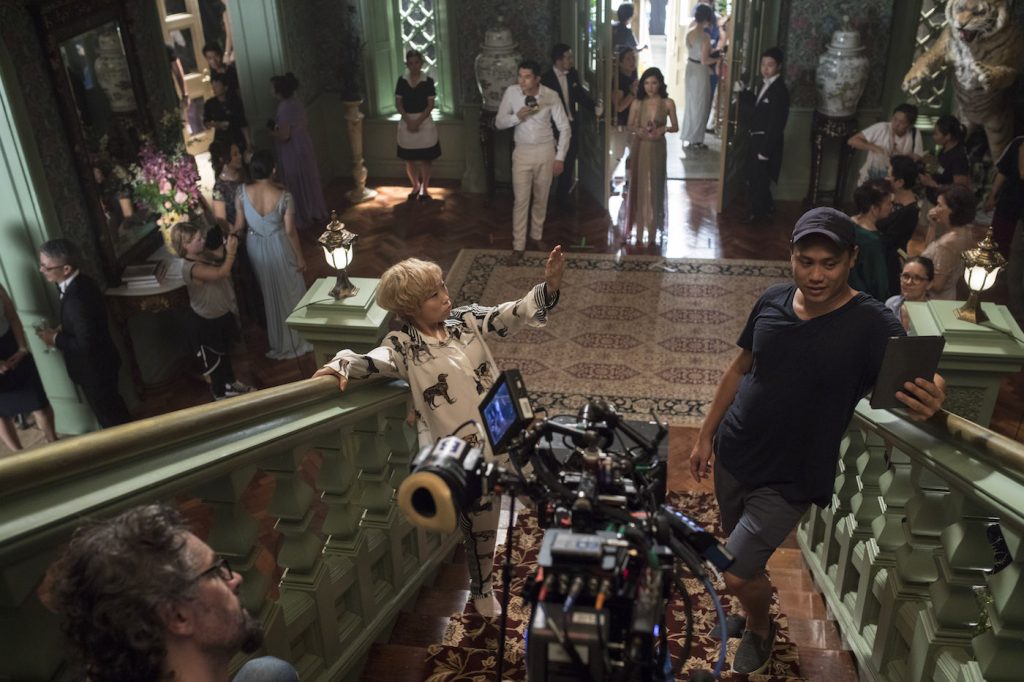
But the audiences did show up—in a major way.
Once I did that, I think the audience responded. The cultural response to that woke my brain up to say, ‘You have more to offer, and what does not exist that you think should exist — that is your calling.’ Maybe that was always the point of movies, and I didn’t get it, and I was playing pretend to be a filmmaker. But at that point, to get that taste of what it feels like to be yourself and put that out there, and people respond so positively, or even negatively, to me, that life. That was worth everything. And then, two weeks after we finished filming Crazy Rich Asians, I had my first child. You grow up, which is very much like Wicked: For Good, it’s about growing up, looking at your childhood self, and seeing the parts you love about that person, and bringing that and pulling the thread all the way to the present. That’s what I feel now: the responsibility and the privilege of making movies is to tell stories that people don’t expect but need deep down, the way I need them.
Is this how you explain your work to your kids?
I tell my kids all the time. A couple of days ago, I said to my daughter, ‘I’m really scared about this movie coming out because I don’t know what people will think.’ Because she was scared to go to the first day of school, I said, ‘But I’m going just to power through, and if people don’t like it, then that will change me, and I’ll take that in. But that won’t change who I am. Then I told her, ‘I think going to school will be great for you, and you’ll find new friends, and the things we learned about are too valuable to give up and not become.’
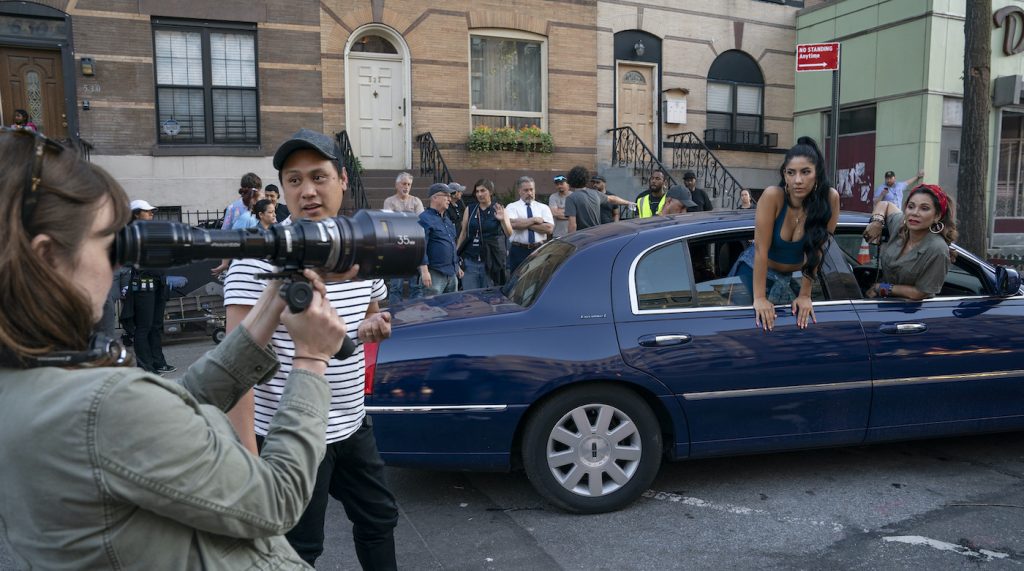
With Crazy Rich Asians, In the Heights, and Wicked, these films delight in cultural specificity and center on outsiders or people navigating different worlds, but they resonate with broad swaths of the public.
I fully feel that. I look at my other friends who are activists and are speaking out, and I’m in awe of their courage to do that. But what I have also accepted is that my voice is through my movies. I can go on interviews and talk all I want about representation, but it doesn’t mean anything. It’s showing people — look how beautiful this Asian family can be. Look how beautiful it is—it’s reflective of my own family. Mahjong is not your game, but you guys play Crazy Eights or whatever it may be, so you know that feeling. Let me show you that you will love Cynthia Erivo. When she sings those words that you’ve heard a hundred times, they will land in ways they have never landed before. When you see Ariana Grande going through her life and trying to find her escape from her own life and finding her authentic self and you see that in her performance as Glinda, then you can see that it also takes courage for someone with privilege to live in their bubble, to pop their privilege, to come down and see what’s actually happening.
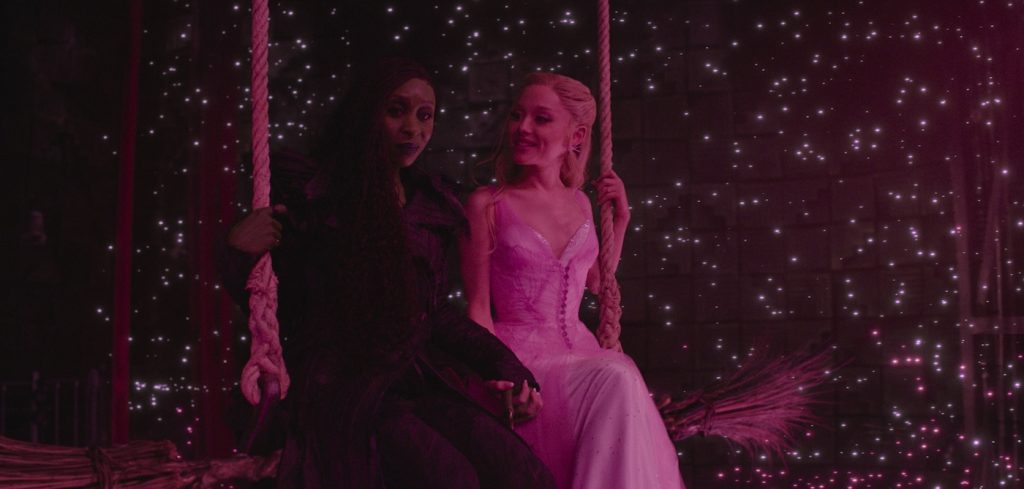
Wicked: For Good is the kind of movie that needs to be seen on the big screen—how do you make that case to people who might wait for it to stream?
I always say it’s supposed to be seen big and felt deep. Those are the movies that stay with me for my life — The Sound of Music, Singin’ in the Rain, E.T., and Back to the Future. What movies do is they’re rocket ships to another planet, but they always take you home. And the ones that are timeless are the ones that you can share forever. You could pick any frame in Wicked or Wicked: For Good, and I could do a one-hour lecture about that one frame — about why the button in the costume, the arguments about the lighting, about why that specific color, or in the mix of why we’re playing the sound of the restaurant more than the score. Every detail is touched by a human being debating about why. When a person sees it, they won’t see any of that. Maybe the 10th time they see it. The real validation is that people feel it, and that’s all that matters. Timeless stories are the most human. This story was written 20-something years ago about totally different circumstances, but we all go through the same struggle. We’re both good and wicked. We try to create enemies so that we have some sort of clarity. We try to make sense of things that don’t make sense.
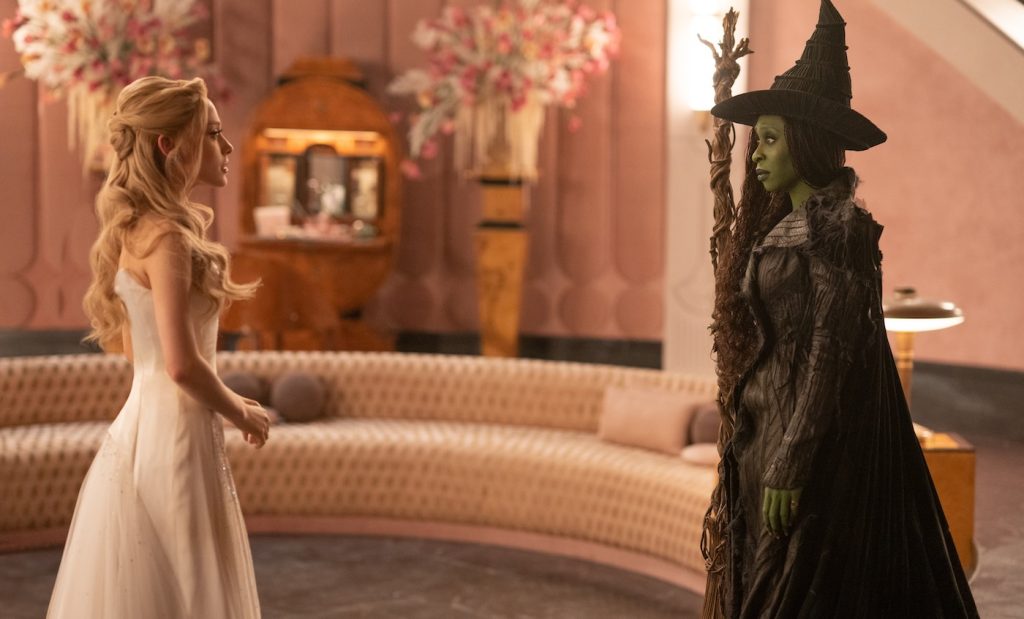
The more culturally specific your films are, the more universal they are.
You said it better than I can. Whatever your thing is, it’s not mine, but you have something like it. It might not be dumplings, but you have something like it. Movies are one of the last art forms that take all the distractions away. You have to make space for that. You have to drive to the theater, you have to park your car, you have to gather your friends, and you have to spend money. You have to walk in, sit down, and make space for someone else’s story. All my non-Asian friends have other cultures too, and it’s always in front of me in movies and TV shows, but I feel connected to those things, even though my mom never made pancakes for me. She made rice for me. I think certain filmmakers already know what it feels like because we have to live it every day. I think it’s a beautiful exchange, actually, saying, ‘Hey, don’t worry, you’re not going to be scared. We’re actually going to love it.’
Wicked: For Good is in theaters on November 21.
Featured image: Cynthia Erivo is Elphaba, Ariana Grande is Glinda and Director Jon M. Chu on the set of WICKED, from Universal Pictures



